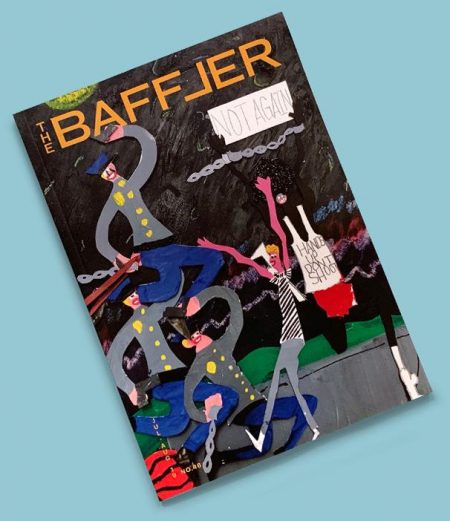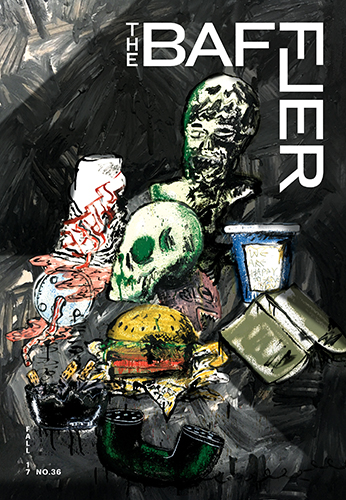The Baffler - # 46: Down By Law
Over the last several decades, the American capitalist consensus, a joint project of neoliberalism and neoconservatism, has realized its dream of a racist, entrenched, and bureaucratic police state. Baffler no. 46, “Down by Law,” takes aim at this ever more carceral reality and ultimately sets its sights on the punished and excluded.
To that end, Marie Gottschalk shines a light on Texas, a state that “today incarcerates nearly one-quarter of a million people in its jails and prisons—more than the total number of prisoners in Germany, France, and the United Kingdom combined.” Kaila Philo recounts the history of Baltimore’s “squeegee kids,” who have long been punished for trying to earn a little cash by washing car windows. Emma Whitford interviews the New York sex workers caught in a thorny legal and ideological battle over the push to decriminalize of their work. And Brendan O’Connor explores how the lives of immigrants at America’s southern border are made expendable and invisible, visiting a commercial trade show for the hyper-violent border security industry.
The unholy alliance of our neoliberal and neoconservative overlords has even managed to export its system of punishment around the world, as Steven Cohen demonstrates in the case of Colombia’s coca farmers, caught in the snare of the global drug wars. For a bird’s eye view, George Scialabba takes stock of three new books that plumb the dark recesses of the twenty-first century’s global marketplace, from the smuggling of rhino horns, to trippy, revenue-generating children’s YouTube videos, to the dark money pooling in the corners of our nation’s trading floors.
This police logic extends even to matters of culture, art, and entertainment. To survey the damage, Niela Orr mines the annals of horror cinema, finding common ground with the black women characters who are persistently killed off because of their curiosity. Rachel Wetzler hops a train to a Cato Institute-funded art exhibition to find out what libertarian art looks like, and Andrew Marzoni excavates the story of the queer intellectual who took Michel Foucault on the desert drug trip of a lifetime—and who ultimately found himself forced from the academy for daring to challenge a conservative university system.
Searching for a common-sense way out of our punitive predicament, John Pfaff interrogates some of the mostly widely held assumptions of criminal justice reform, including reformers’ focus on private prisons, arguing that “it ultimately is the public sector, not the private, that is at the heart of mass incarceration.” And Ross Barkan examines the idea of the progressive prosecutor—touted by some liberals as the surest way to a kinder, gentler justice system—reminding us that “reform movements are confined by institutions until they seek to topple them altogether.”
€12.00












